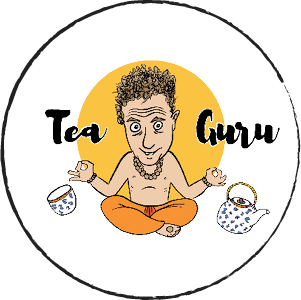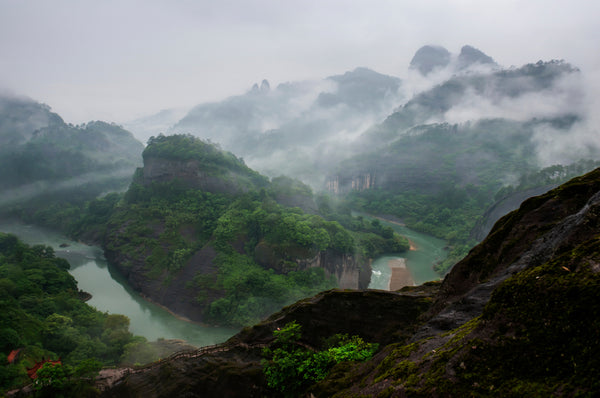
Ok, Let’s discover Yancha! The most famous of all Chinese oolong teas!
What is a Yancha oolong (wu long)?
Yancha tea, also known as Rock Tea, is a category of oolong tea that originates from the Wuyi Mountains in Fujian Province, China. The term “Yancha” translates to “rock tea,” which refers to the rocky and mineral-rich environment in which these teas are cultivated. This unique growing environment contributes to the distinctive flavor, aroma, and character of Yancha teas. The teas of this region are generally roasted or ‘baked’ and of a dark appearance and roasted flavour. Although true Yan Cha originates from within the mountain range you can still buy more generic Fujian oolongs such as Da Hong Pao or Rougui cultivated in satellite regions, they are similar but not as good! 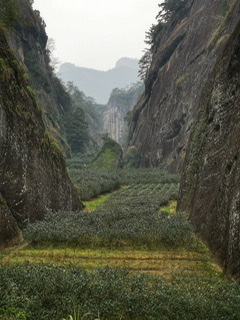
The Wuyi Mountains consists of 39 peaks, 99 valleys, and a river with 9 bends. There is only scattered information on the tea areas within the Wuyi mountain range on the western internet. Here is the tourist map of the area to help you visualise. 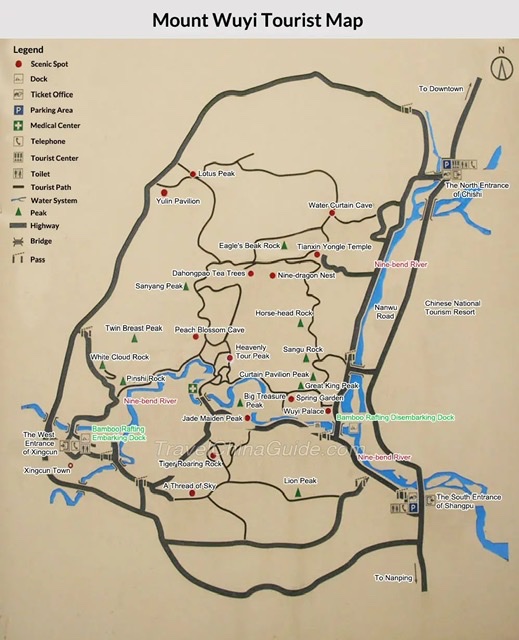
History:
Yancha tea has a long history dating back to the Ming Dynasty (1368-1644) and Qing Dynasty (1644-1912). The tea gained recognition for its special qualities and was often offered as tribute to emperors and high officials, something that still happens today! More on this later. Its reputation grew over the centuries, and it became associated with both imperial patronage and elite appreciation.
Unique Growing Environment:
What makes Yancha tea unique is the terroir that the material is cultivated in. The rugged and mineral rich terrain of the Wuyi Mountains in Fujian Province, China is packed with flavour unseen anywhere else. The rocky soil and high elevation contribute to the tea’s distinct characteristics. The challenging environment forces tea bushes to develop unique flavors and aromas as a response to their surroundings, setting Yancha tea apart from teas grown in more typical conditions. Drinkers describe this as the ‘Rock Taste’. This taste is effectively a returning mineral bitterness between the cheeks, imagine licking a rock. Famous areas in the mountains are part of the government designated ‘World Heritage Preserve. All tea cultivated inside this area is organic which creates a pure taste.
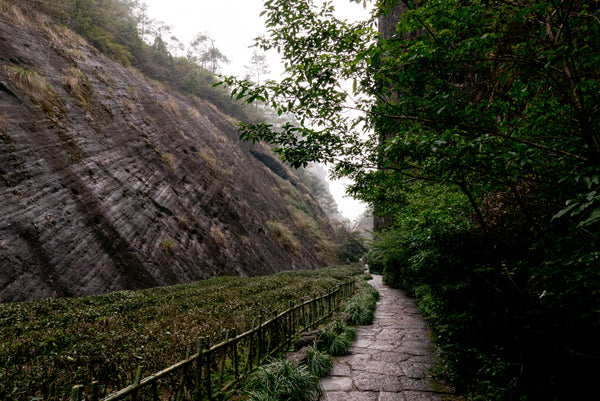
Artisan Processing Techniques:
The processing methods used to create Yancha tea are highly intricate and require skill and expertise. The leaves are often semi-oxidized and roasted, resulting in a range of flavor profiles that can include floral, fruity, and mineral notes. The craftsmanship involved in producing Yancha teas is a craft handed down from generation to generation and contributes to their high quality and desirability. Make no mistake in the processing! A badly baked batch will be deemed unsellable.
Some popular Yancha tea varietals:
- Dahongpao (literally’Big Red Robe’) Is the most famous of Yancha teas. Some people generally refer to Yancha in it’s entirety as Da Hong Pao for simplicity. The most sought after tea bushes are planted in the gaps and crevices of the rocky cliffs which lend a mineral rich taste to the tea. The name “Big Red Robe” is said to originate from a legend where the tea was used to cure an emperor’s mother, and the emperor bestowed a red robe upon the tea bushes in gratitude.
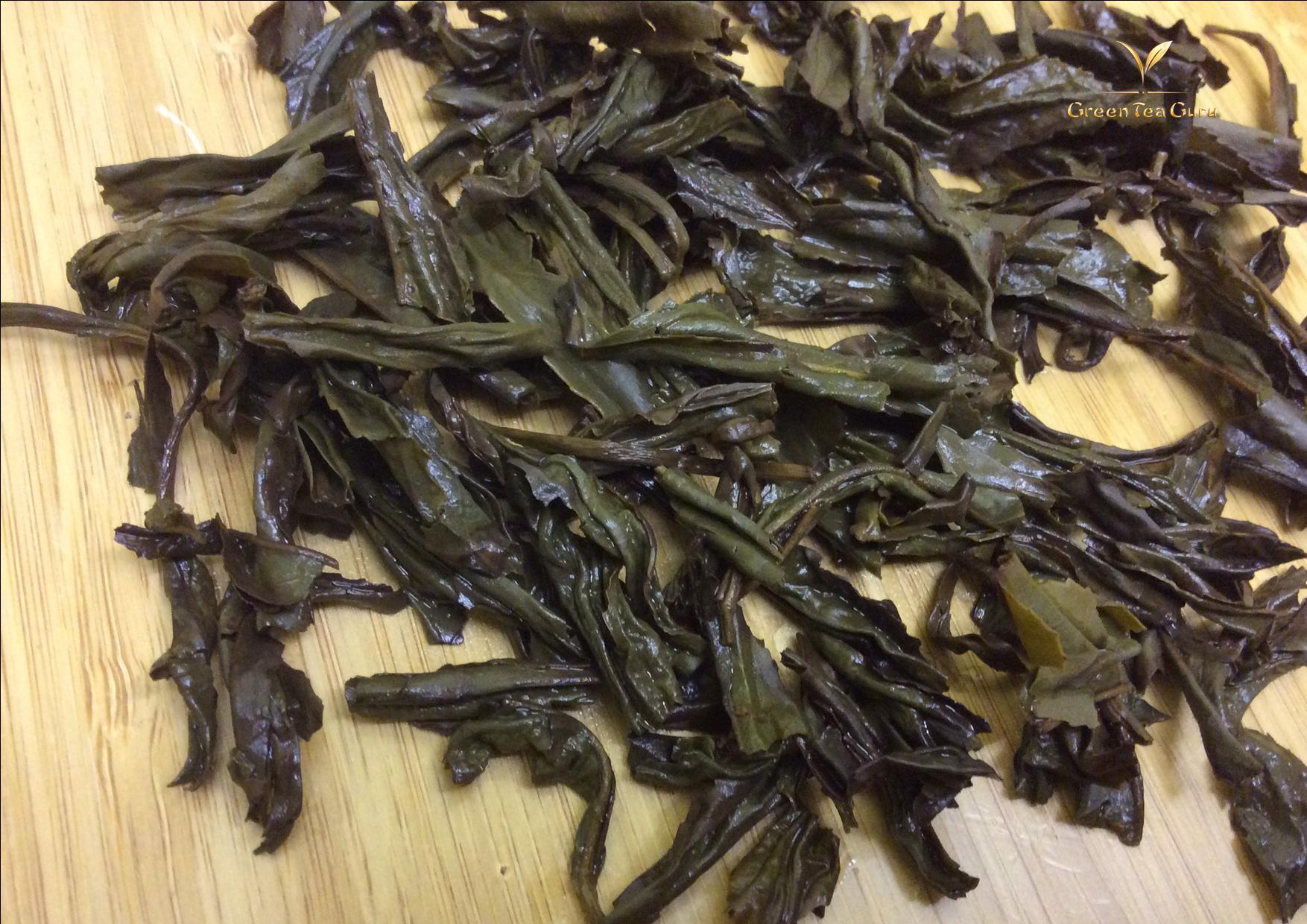
- Rougui (Cinnamon): Rougui is another popular Yancha tea variety and personally my favourite! It’s known for its distinctive cinnamon like aroma and flavor. The leaves of Rougui tea bushes are rolled into tightly twisted strips, contributing to its unique appearance.
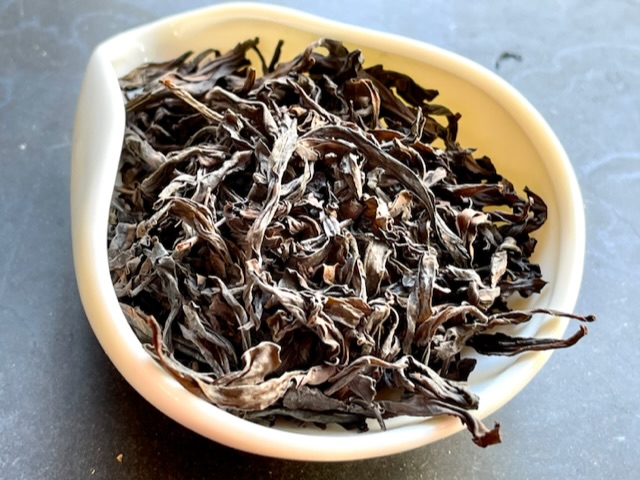
- Shuixian (Narcissus): Shuixian is valued for its floral and fruity aroma, as well as its mellow taste. “Shuixian” translates to “Narcissus,” which describes the tea’s floral fragrance reminiscent of the flower.
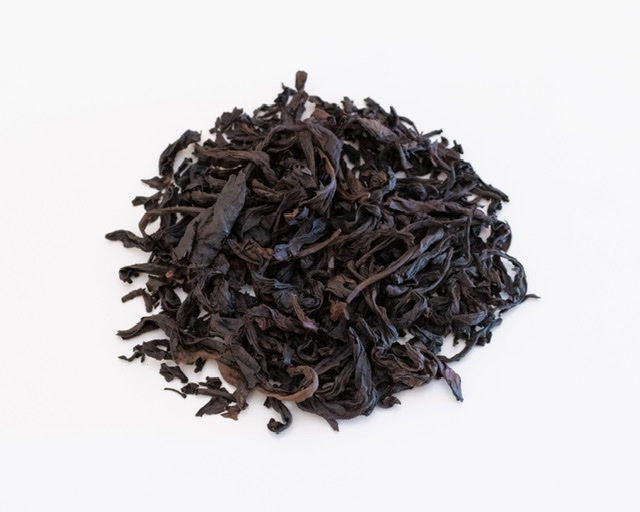
- Shuijingui (Golden Water Turtle): Shuijingui is cultivated in the Tongmu Village area of Wuyi. It is named after the golden color of its liquor and the village’s association with turtle-shaped rocks. This Yancha tea is known for its rich and full-bodied flavor.
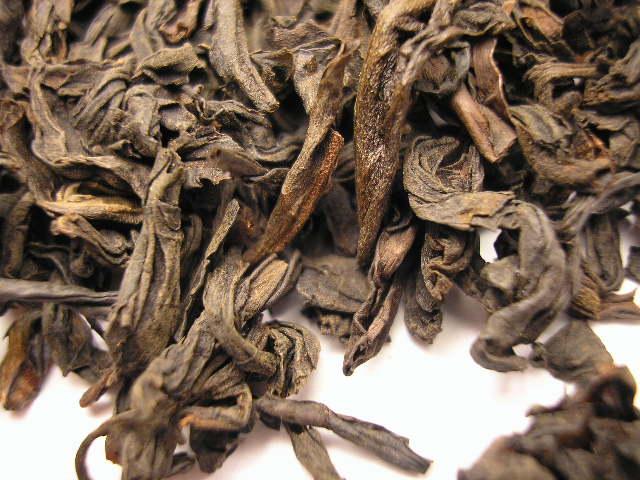
- Baijiguan (White Cockscomb): Baijiguan is appreciated for its fruity and sweet taste, often accompanied by floral notes. The name “Baijiguan” refers to the white appearance of the tea buds, resembling the crest of a white cock’s comb.
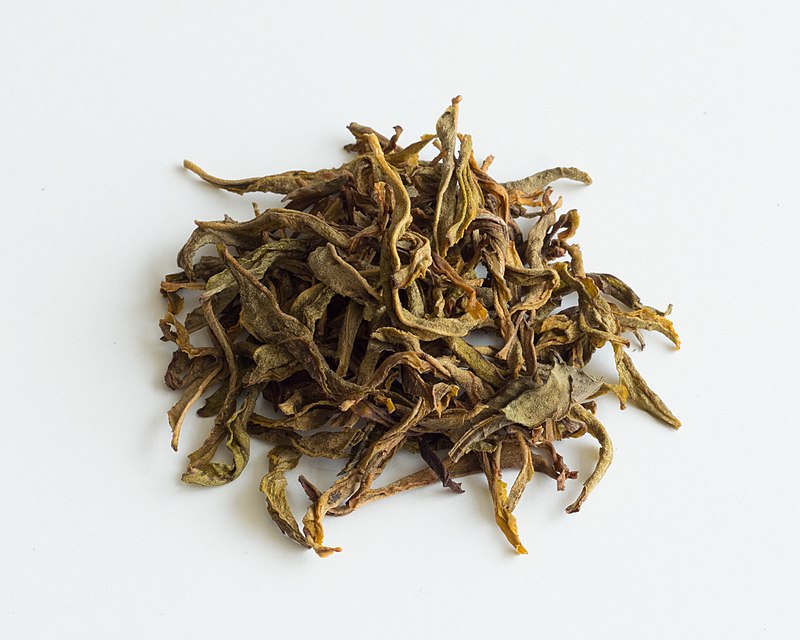
Price and exclusivity:
The exceptional qualities of Yancha teas makes them highly sought after by tea enthusiasts inside China and around the world. The very best of which are generally not available on the open market and instead, as in time gone by, are gifted as tribute by and to members of China elite…Groan ☹️. Sometimes this material does hit the auctions but let’s get real, the price of mother bush Yancha tea is extremely high….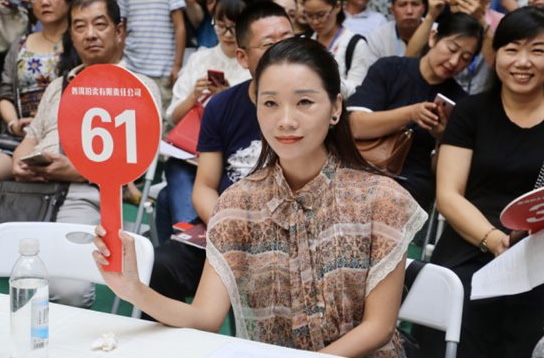
The most expensive and sought-after Yancha teas is mother bush “Da Hong Pao” (Big Red Robe). Actually there are 3 mother bushes of this varietal and it’s often referred to as the “king of teas”. Top shelf Da Hong Pao is reported to be around $1.2 million per kg or $12,000 for a 10g session, Ouch!
It’s true that Yancha has the reputation of being overpriced due to demand factors, which I find to be quite untrue. To give an indication of scale, at this current time (summer 2023) We sell some very good Yancha at around £30 per 100g which is extremely reasonable for the experience your getting. At this price level I equate the quality / price ratio to be on par with oolong tea of other areas. Now, if you really want to spend some money on this region, you can. I tasted some insanely nice D H P in Hong Kong 2018 with solid and lingering rock taste for £100 100g, this again is well worthy of the price tag. Where people get confused is the super high price zone, just like in any other sector, price/ quality ratio drops quite considerably at the higher end, all due to exclusivity and demand.
In general Yancha is great tea of note with unique tastes specific to this region. Every tea enthusiast with some interest in these teas should try some. Please take a look at our current offerings in store!
